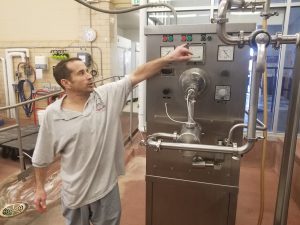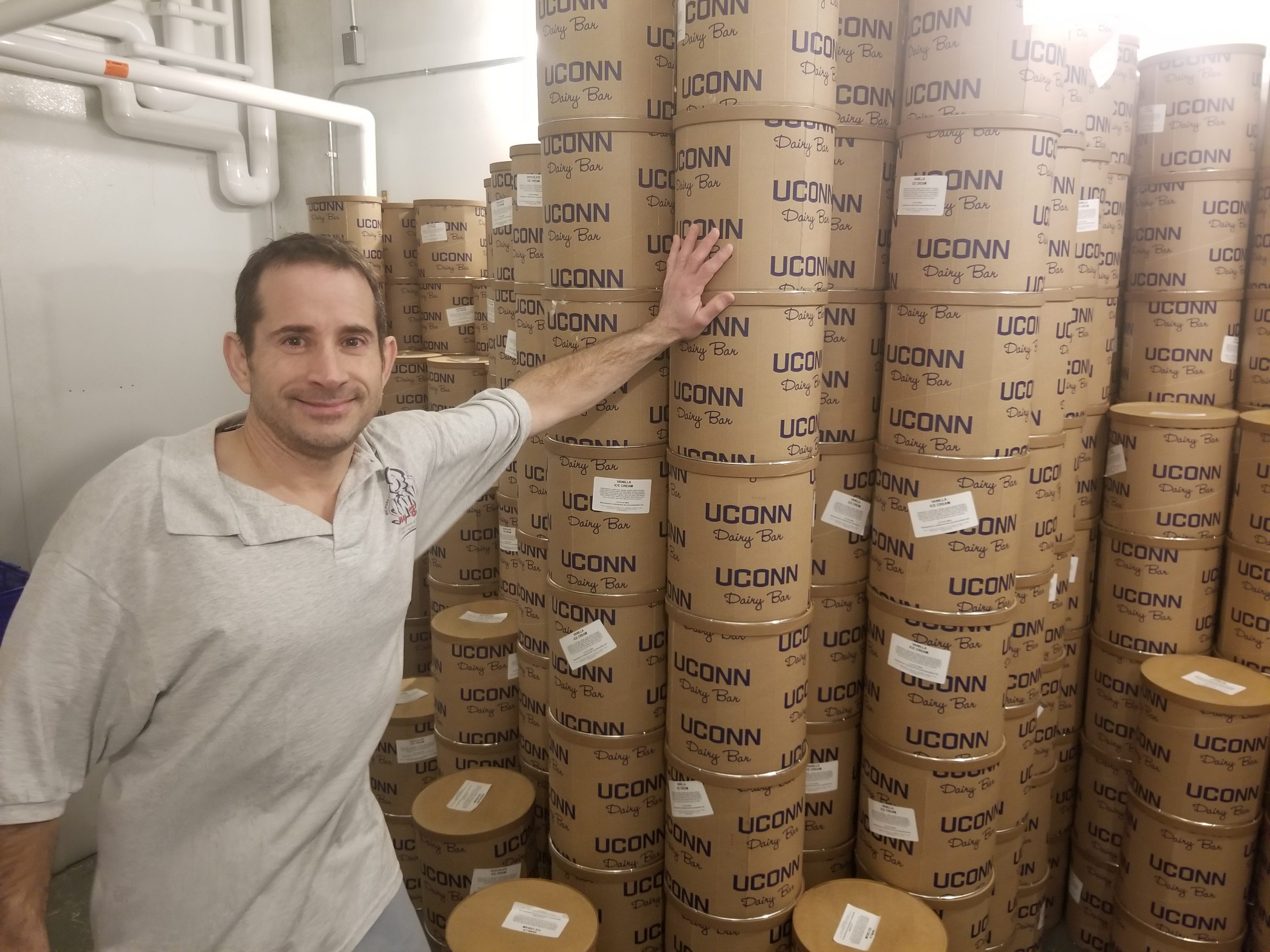Customers will continue to enjoy vanilla ice cream at the UConn Dairy Bar and not even realize that, without the quick action of the school’s Facilities Operations department, there would have been scarcity in the tasty treat.
Bill Sciturro, the manager of dairy manufacturing at the creamery, and his staff were getting ready to make vanilla ice cream last Monday, Feb. 17.
The mix was in the storage tank and it was time to send it to the ice cream churning freezer, the middle stage of production.
“The freezer runs flawless 99.9 percent of the time,” said Sciturro. “It’s like starting your car, you expect it work every time. For the first time in years, it did not start.”
Sciturro and his staff were on the clock. One-third of their ice cream mix for the day had already gone through the flavoring tank, and if not fully processed in four hours, the product would a loss.
“So we are standing here, I’ve got 150 gallons of mix flavored for vanilla and nothing to do,” said Sciturro.
He immediately called Pete McQueeney, a supervisor in the HVAC area of Facilities Operations, which installs and repairs heating, ventilation, air conditioning, and refrigeration systems all over campus.
“I told Peter, you’ve got to get somebody over here that has worked on this machine before, and quickly,” said Sciturro.

McQueeney identified a technician who was working on a job that could wait and immediately dispatched him to the creamery.
“He popped the back of the freezer off and diagnosed a broken switch and figured out how to bypass it to safely run the machine,” said Sciturro.
The creamery staff was able to make ice cream out of the mix that needed to be used right away, and on Tuesday processed the rest of the refrigerated mix from the previous day. Ninety tubs (50 scoops a tub) of vanilla ice cream were produced on Monday with over 100 tubs on Tuesday.
Production was halted for two days to install the new switch and by Friday, the entire operation was back to normal operations.
The financial savings were significant, as over 9,500 saved scoops of ice cream were able to be sold, meaning an outside company wasn’t needed to come in and dispose of a spoiled mix.
“That’s why you have to reprioritize and shift gears and adjust people,” said McQueeney. “This was a priority, so we got the people over here to take care of the problem.”
The Dairy Bar was down to only 115 tubs of vanilla in supply, not enough to keep up the demand of their customers.
“It’s a little slow now, but in June we go through 150 tubs of vanilla a week,” said Sciturro. “That was the biggest issue – staying ahead of the demand.”



